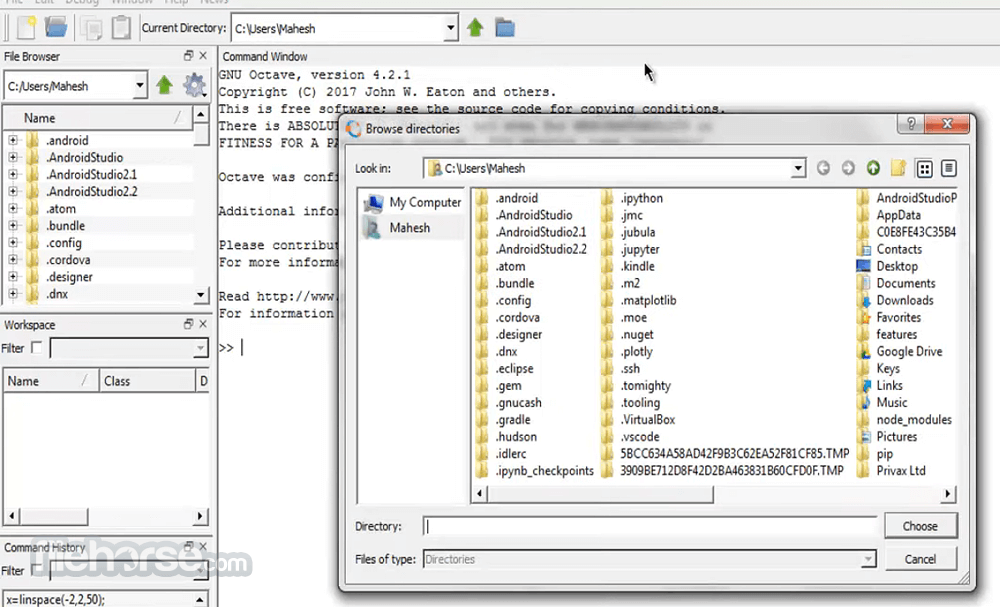-
Latest Version
-
Operating System
Windows 10 (64-bit) / Windows 11
-
User Rating
Click to vote -
Author / Product
-
Filename
octave-9.1.0-w64-installer.exe
Sometimes latest versions of the software can cause issues when installed on older devices or devices running an older version of the operating system.
Software makers usually fix these issues but it can take them some time. What you can do in the meantime is to download and install an older version of Octave 9.1.0.
For those interested in downloading the most recent release of Octave or reading our review, simply click here.
All old versions distributed on our website are completely virus-free and available for download at no cost.
We would love to hear from you
If you have any questions or ideas that you want to share with us - head over to our Contact page and let us know. We value your feedback!
What's new in this version:
- Bugfixes to whos -file, urlread, mat2cell, set, savepath, loadpath, griddata, and the general interpreter stack-handling
- Better input validation for sparse, speye
- Memory usage reduced for movfun and movslice
- Memory usage reduced when saving to file, preventing OOM and data loss
- Memory usage improved when plotting grid tick marks
- Memory management made more robust in the GUI code and with several GUI components (variable editor, doc browser, etc)
- Text encoding for non-UTF-8 generally made more robust. File editor now lists available encodings
- Octave on Windows now supports directory names and path names with non-ASCII characters (other platforms had it already for years). Windows paths now also allow relative paths on different drives
- Several race conditions removed in signal handler
- Better compatibility when linking to libc++
- Performance and stability improvements: avoid unnecessary string construction, use static casts instead of dynamic casts where possible, eliminate various isolated crash conditions
 OperaOpera 118.0 Build 5461.41 (64-bit)
OperaOpera 118.0 Build 5461.41 (64-bit) PC RepairPC Repair Tool 2025
PC RepairPC Repair Tool 2025 PhotoshopAdobe Photoshop CC 2025 26.5.0 (64-bit)
PhotoshopAdobe Photoshop CC 2025 26.5.0 (64-bit) OKXOKX - Buy Bitcoin or Ethereum
OKXOKX - Buy Bitcoin or Ethereum iTop VPNiTop VPN 6.4.0 - Fast, Safe & Secure
iTop VPNiTop VPN 6.4.0 - Fast, Safe & Secure Premiere ProAdobe Premiere Pro CC 2025 25.2.1
Premiere ProAdobe Premiere Pro CC 2025 25.2.1 BlueStacksBlueStacks 10.42.50.1004
BlueStacksBlueStacks 10.42.50.1004 Hero WarsHero Wars - Online Action Game
Hero WarsHero Wars - Online Action Game SemrushSemrush - Keyword Research Tool
SemrushSemrush - Keyword Research Tool LockWiperiMyFone LockWiper (Android) 5.7.2
LockWiperiMyFone LockWiper (Android) 5.7.2










Comments and User Reviews